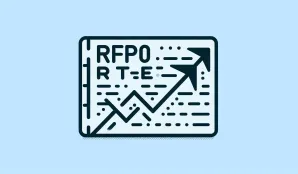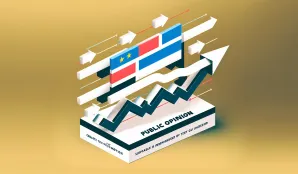- Articles
- Tips

The EU May Increase Taxes on White Snus
A leaked document from Brussels reveals that the EU plans a significant tax increase on white snus – a product that has grown explosively within Swedish e-commerce. The tax is proposed to increase by over 500 percent. We have taken a closer look at the information and the potential consequences for consumers, as well as for the entire system of logistics, tech, and retail.
A concrete proposal has leaked from the EU's inner circles, suggesting that the taxation of white snus be raised from the current 207 kronor to a staggering 1360 kronor per kilo. This corresponds to an increase of 557 percent.
The proposal is justified by the need to harmonize tax systems within the union. Although it does not apply to traditional tobacco-based snus, the consequences could be significant for the Swedish export industry as white snus has increased dramatically in popularity.
Many are critical of the proposal, arguing that it lacks support from both businesses and consumers. Instead of strengthening competitiveness, such a tax increase risks presenting a substantial challenge to Swedish e-commerce focused on nicotine pouches.
How the Tax Affects Consumers
According to the proposal, a can of white snus could become approximately 45–60 percent more expensive than today. Currently, a can costs around 40–45 kronor, with tax accounting for just over three kronor. The new EU tax would instead add around 20 kronor in tax per can.
For Swedish consumers, who are accustomed to competitive prices and good availability online, this would represent a noticeable setback. There is also a risk that some may revert to traditional tobacco products – even those who have not previously used such products.
A concrete example is Velo Mighty Peppermint, which today costs around 40 kronor but, under the new proposal, could cost around 60 kronor. Similar price increases are expected across the entire segment, marking a clear change for consumers.
The E-commerce Nervous System Threatened by New Regulations
Online trade in nicotine products has emerged as an efficient and technology-driven ecosystem. Swedish e-retailers have invested in advanced logistics solutions, algorithm-based inventory management, and tailored marketing.
Such a significant tax increase risks negatively impacting profitability, as higher prices often mean reduced volumes and lower margins. Particularly vulnerable are niche e-commerce players who base their entire business on fast distribution and affordable options.
The proposal from Brussels could thus threaten business models that currently function very well – and which also contribute to innovation within Swedish retail.
A Setback for Swedish Tobacco Policy
The EU proposal comes at a time when Sweden has chosen to reward less harmful nicotine alternatives through lower taxation of snus compared to cigarettes. The Swedish model has been internationally highlighted as a pragmatic way to improve public health.
White snus has so far been exempt from the EU's tobacco directive as it does not contain tobacco, allowing Swedish companies to expand rapidly. The new proposal would significantly change this situation.
A number of EU countries have already imposed bans or restrictions on nicotine pouches. In France, Lithuania, and the Netherlands, they are banned, while Finland and Latvia have strict regulations. This creates a fragmented market where legal uncertainty prevails – for both producers and consumers.
A More Nuanced Picture – What Else is Happening?
Although the tax proposal concerning white snus worries many, it is worth noting that other living costs have somewhat decreased recently. Among other things, fuel and electricity prices have stabilized after periods of sharp increases. Several households have thus experienced some relief in their expenses.
This underscores how complex the economy is – where some expenses increase while others decrease. For both politicians and consumers, the challenge will be to weigh these changes against each other and make decisions that hold over time.
Sweden's national debt
-

Opinion Polls: Kantar-Sifo shows increased support for S, decline for SD and C
Fri, 13 Feb 2026 - 01:35 -

Policy rate remains at 1.75% – Riksbank signals stability
Thu, 29 Jan 2026 - 14:02













